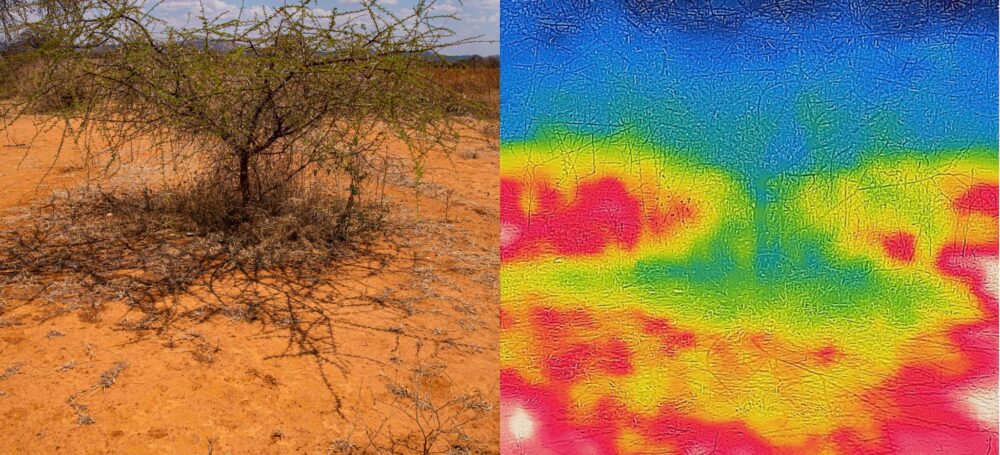We have been restoring landscapes using Kisiki Hai/FMNR technique for over ten years now and have restored more than 14 million trees. We always work closely together with our beloved farmers, who at the same time benefit from the regreening efforts and are responsible for the success of our regreening projects. Many of them told us not only about higher crop yields but also that they feel healthier and that their environment has become cooler. They can sit and rest under the trees and feel more calm. Nevertheless, the impact of trees in arid farmlands on human health is poorly studied. In Tanzania, agricultural workers form 70% of the working population, making heat exposure both a health and economic concern. This is why this year Dr. Faraja Chiwanga, LEAD Foundation’s executive secretary, received funding from Wellcome Trust and started a research project about how FMNR trees impact the microclimate and farmers health. The research will start by understanding heat risk and local adaptation practices, and thereafter evaluate how trees on croplands alter microclimates to potentially protect workers against chronic kidney disease, dehydration, and cardiovascular strain. The aim is not only to find out more about the health effects of FMNR trees but also to build local capacity by creating awareness, training, and developing open access resources. A platform for multidisciplinary research will be promoted by working with local universities to deliver modules and teaching material on climate change, land use change and health. We are very glad to start our first big research project and are looking forward to gaining more knowledge about how our trees affect microclimates and farmers health.
Also watch our Repost form Wellcome Trust on Instagram: https://www.instagram.com/p/CtGbnE_tRDa/


Comments are closed.